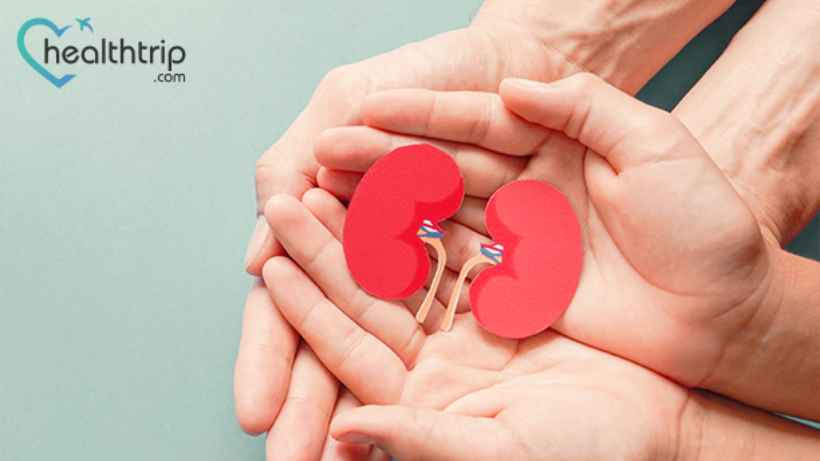
What are the warning signs of having Kidney stones?
29 Sep, 2022
 Healthtrip Team
Healthtrip TeamKidney stones are one of the most commonly caused kidney-related issues that people usually face. Kidney stones are also widely known as renal calculi, urolithiasis, and nephrolithiasis; kidney stones are basically hard deposits that are made by the accumulation of salt and minerals inside the Kidneys. There are several factors that are responsible for the accumulation of minerals and salt that result in hard deposits of stones in the kidneys, some of the risk factors include unhealthy dietary habits, excessive body weight, medications, consumption of supplements, etc.
Usually, most people are able to get rid of kidney stones naturally without much problem but in cases where the stones are large it might create a lot of health-related issues that might require kidney surgery or in worse cases, they might even require a kidney removed. Kidney stone affects individuals on many grounds as it primarily affects the urinary tract, urinary bladder, ureter, etc. Small kidney stones can easily pass through the urinary tract but if the stone gets stuck into the urinary tract or ureter, then it might cause a severe urinary infection that may require surgery.
Transform Your Beauty, Boost Your Confidence
Find the right cosmetic procedure for your needs.

We specialize in a wide range of cosmetic procedures

Symptoms of kidney stones
Generally, kidney stones do not show any symptoms unless and until they start to move around the kidney or pass into the ureter. Once it passes to the ureter it becomes painful and may lead to scarring infection and it may even block the flow of urine causing the kidney to swell up which could be very painful and in such cases, one requires immediate medical help.
The symptoms of kidney stones may vary from person to person some of which include:
- Severe pain
- Pain in the groin and lower abdomen
- Burning sensation while urinating
- Pain while urinating
- Pink or brown urine
- Foul-smelling urine
- Nausea
- Vomiting
- Fever
- Chills
- Frequent urination
- Sudden and excruciating pain
- Blood in urine
- Difficulty in passing urine
Also, read - Kidney Infection Symptoms
Types of kidney stones
Identifying the type of kidney stone is important as it helps in determining its cause and the kidney surgery type that may be required.
Different types of kidney stones include:
- Cystine stones
- Struvite stones
- Calcium stones
- Uric acid stone
Also, read - Kidney Infection vs Back Pain
Most popular procedures in India
Total Hip Replacemen
Upto 80% off
90% Rated
Satisfactory

Total Hip Replacemen
Upto 80% off
90% Rated
Satisfactory

Total Hip Replacemen
Upto 80% off
90% Rated
Satisfactory

ANGIOGRAM
Upto 80% off
90% Rated
Satisfactory

ASD Closure
Upto 80% off
90% Rated
Satisfactory

Treatment
The basic treatment for kidney stones that are widely used in order to remove smaller stones is to drink a lot of water that helps the stone to easily pass through while urinating. The doctor may also recommend medications in order to help you with passing the stone.
Non-invasive procedure: Shock wave lithotripsy is one of the most commonly used procedures as it is non-invasive and high energy sound waves in order to break the stone into tiny fragments that can be easily passed through in the urine.
Laparoscopic kidney surgery: Kidney surgery for stones is required when the stone does not pass even after consumption of medicine, if the pain is severe, and the size of the stone is too large, the stone gets stuck into the ureter. Advanced laparoscopic surgery helps in performing the surgery without much pain as it requires small incisions that minimize pain and provide faster recovery.
Also, read - UTI vs Kidney Infection
What are the side effects or risks of having a kidney removed?
In the case of kidney stones generally, the kidney is not removed but if there is a severe infection or the kidney is damaged then kidney removal or Nephrectomy may be required.
Side effects or risks include:
- Infection
- Excessive bleeding
- Hypertension due to reduced kidney function
- Chronic kidney disease
- Risk of kidney failure
Also, read - Kidney Transplant Benefits and Disadvantages
How can we help with the treatment?
If you are looking for a kidney transplant in India then be assured, we will assist you and guide you throughout your medical procedure and will help you through the follow-up consultations as well. The following will be provided to you:
- Expert physicians, doctors, urologists, and surgeons
- Transparent communication
- Coordinated assistance
- Prior appointments with specialists and follow-up queries
- Assistance with medical tests
- Assistance with hospital formalities
- 24*7 availability
- Rehabilitation
- Travel arrangements
- Assistance for accommodation and healthy recovery
- Assistance in emergencies
Our team offers premium quality health travel and assistance to our patients throughout their course of treatment. We have a team of highly qualified health professionals that will guide you throughout your medical tour.
Wellness Treatment
Give yourself the time to relax
Lowest Prices Guaranteed!

Lowest Prices Guaranteed!
